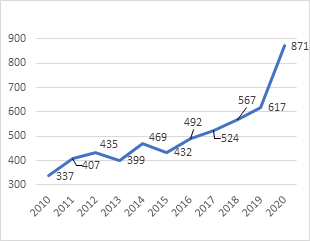A new paper published ONLINE FIRST freely accessible finds for Portugal’s wage gap between vocational and general secondary education no support for either the human capital prediction of crossing wage profiles or the hypothesis that general graduates increasingly outperform vocational graduates in late career.
The Global Labor Organization (GLO) is an independent, non-partisan and non-governmental organization that functions as an international network and virtual platform to stimulate global research, debate and collaboration.

by Joop Hartog, Pedro Raposo & Hugo Reis
Published ONLINE FIRST 2021: Journal of Population Economics
OPEN ACCESS and PDF.
GLO Fellow Hugo Reis

Author Abstract: We document and analyse the wage gap between vocational and general secondary education in Portugal between 1994 and 2013. As Portuguese workers have been educated in different school systems, we have to distinguish between birth cohorts. Analysing the wage gaps within cohorts, we find no support for either the human capital prediction of crossing wage profiles or the hypothesis that general graduates increasingly outperform vocational graduates in late career. We discover that the lifecycle wage profiles have shifted over time. We link the pattern of shifting cohort profiles to changes in the school system and in the structure of labour demand. We conclude that assessing the relative value of vocational education requires assessing how the vocational curriculum responds to changes in economic structure and technology. We show that the decline in assortative matching between workers and firms has benefited vocationally educated workers.

EiC Report 2020
Journal of Population Economics
Access to the recently published Volume 34, Issue 3, July 2021.
LEAD ARTICLE OF ISSUE 3, 2021:
The safest time to fly: pandemic response in the era of Fox News
by Maxim Ananyev, Michael Poyker and Yuan Tian
OPEN ACCESS: Free Readlink – Download PDF
Ends;

